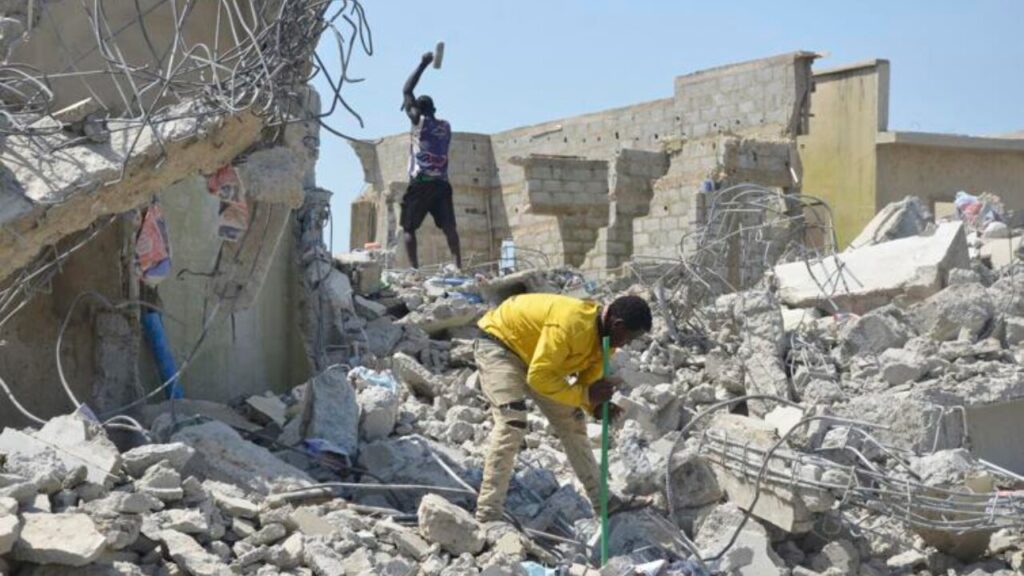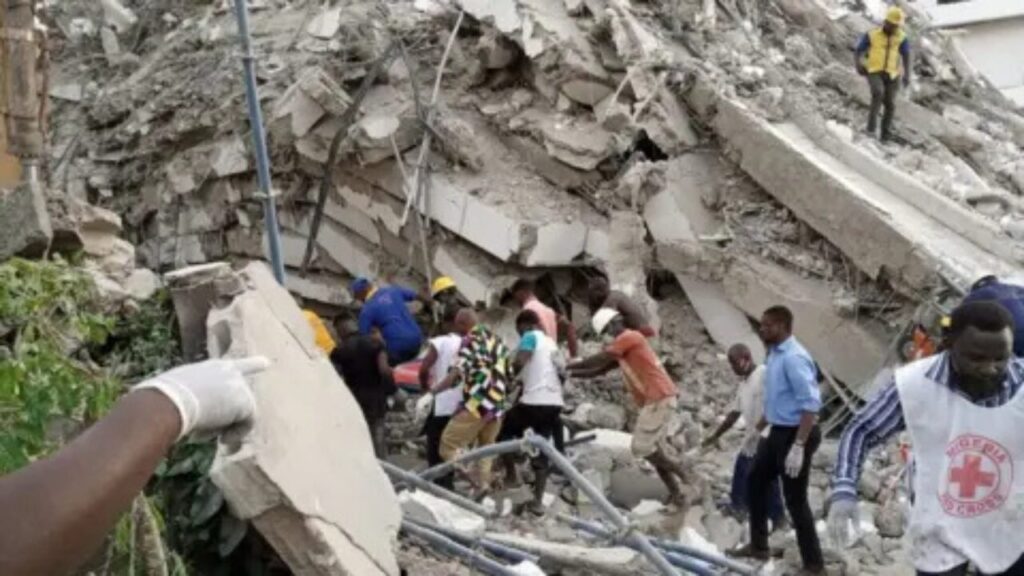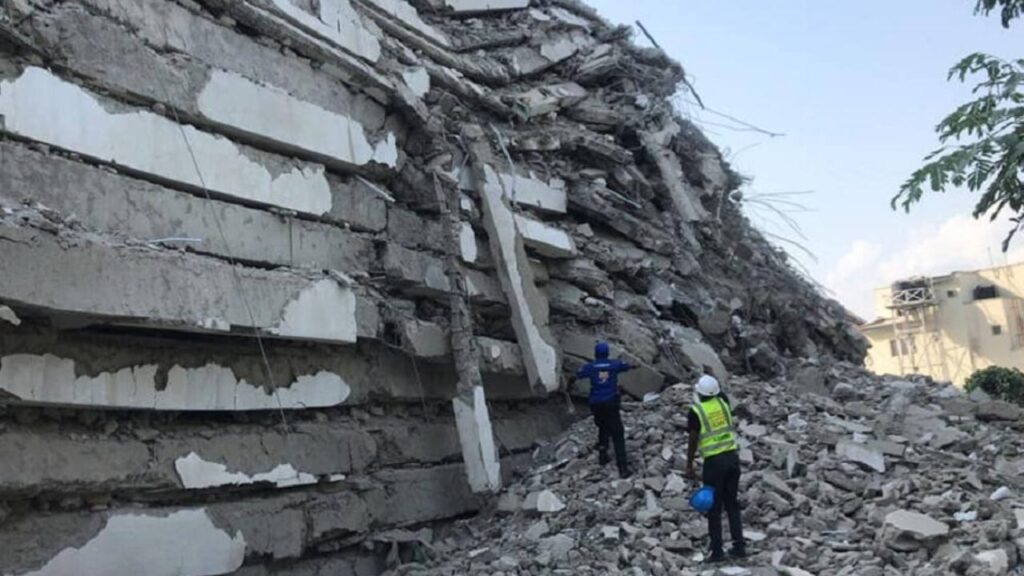Hello, everyone, and welcome back to the Bullion Rise Consult blog.
Table of Contents
ToggleToday, we shall talk about an issue that’s been causing a lot of heartache and concern across Nigeria—building collapses.
Every year, we hear stories of buildings collapsing, sometimes taking lives and destroying property.
It’s a nightmare, and it’s happening far too often. So, what’s really going on, and what can we do about it?
The construction industry in Nigeria has been growing rapidly.
Demand for new buildings, whether for homes, offices, or shops, is high.
But alongside this growth, we’re seeing a disturbing trend of buildings that simply don’t last.
They’re falling apart, and the reasons why this happens often boil down to issues we can actually control.
In this post, we’re going to talk about five key steps Nigeria must take to stop these collapses.
These aren’t just empty ideas; they’re real, practical actions that can make a difference if we commit to them.
So, let’s dive in.

#1. Enforce Strict Building Regulations
First, let’s talk about regulations.
Nigeria has building codes, just like other countries, but the problem is that they’re not always enforced.
The regulations are there, but without strict enforcement, they don’t do much good.
A lot of buildings end up skipping crucial steps in construction because no one is ensuring the rules are followed.
Think of building regulations as the rules of the road for construction.
Just like ignoring traffic laws leads to accidents, ignoring building regulations leads to collapse.
The first big step is making sure that these regulations aren’t just words on paper but are actively enforced at every
level.
This means holding everyone accountable – from contractors and engineers to building inspectors.
Strict enforcement also means penalties for violators.
If builders know there are serious consequences for breaking the rules, they’ll be more likely to follow them.
So, enforcement of building regulations is our foundation here.
Without it, everything else we talk about falls apart.
Imagine if every building project in Nigeria had an inspection team that couldn’t be bribed or influenced.
We’d see fewer structural issues and, ultimately, fewer collapses.
Read – How do I Obtain Building Permits in Nigeria?
#2. Improve Quality Control of Construction Materials
Now, let’s think about the materials that go into these buildings.
Even if we have strict regulations, it doesn’t help if the materials used are poor quality.
A building is only as strong as the materials holding it up, and unfortunately, substandard materials are a huge issue in Nigeria.
Take cement, for example.
If a building project uses low-quality cement, the structure’s strength is compromised from day one.
The same goes for steel, sand, and other materials.
Quality control for these materials is essential.
We need to ensure that the cement, steel, and other materials used in Nigerian buildings meet high standards.
This requires a system where every batch of materials is inspected and tested.
Imagine if we had strict checks on the materials entering construction sites.
If builders only used materials that met strict standards, we would immediately see a difference.
The buildings would be stronger, more stable, and less likely to collapse.
This is especially true when we think about imported materials, which sometimes bypass quality checks.
Regulating these imports and keeping quality standards high can make a massive difference in the stability of our buildings.
Also read – Building Materials Used for Building Houses in Nigeria

#3. Promote Professional Training and Certification
Now, let’s talk about the people building these structures.
The truth is, not everyone working in construction in Nigeria is qualified.
Some workers lack the skills and training needed to construct safe, durable buildings.
When people without proper training handle such serious work, the results can be disastrous.
To change this, we need to focus on professional training and certification.
If builders, engineers, and other construction workers have the right skills, they can create safer, higher-quality
buildings.
Professional training ensures they understand the basics of building safety and structural integrity.
Certification, on the other hand, verifies that these workers know what they’re doing.
Imagine a construction industry where everyone has to go through a rigorous certification process.
It would mean that only people with the necessary skills and knowledge get to work on building sites.
With this, mistakes and oversights would decrease.
Projects would be completed by professionals who know exactly how to handle the complexities of construction.
In short, trained professionals make better buildings, and better buildings mean fewer collapses.
Related – How do I find reliable building contractors in Nigeria?
#4. Raise Public Awareness and Education
Education isn’t just for construction workers; it’s also for the public.
If people understood more about building safety, they’d be in a better position to demand quality.
The public has a crucial role in holding builders and regulators accountable.
When people are informed, they can make safer choices.
Let’s imagine a world where homeowners, tenants, and buyers know how to recognize safe building practices.
They would be able to ask the right questions before investing in or moving into a property.
Public awareness campaigns can make a big impact here.
Through radio shows, social media, and community programs,
we can spread information about the dangers of substandard construction and the importance of building safety.
Informed citizens can act as watchdogs.
They can report concerns and refuse to tolerate unsafe building practices.
In this way, public awareness is like an extra layer of accountability.
When people know their rights and understand what to look for, they become part of the solution.
Read – I Want To Build a House on My Land Where Do I Start
#5. Encourage Transparency and Combat Corruption
Lastly, let’s address the elephant in the room – corruption.
Unfortunately, corruption is a major issue in the Nigerian construction industry.
It allows unqualified contractors to win projects, bribes to bypass inspections, and shortcuts to be taken at every level.
When corruption is present, safety takes a back seat, and lives are put at risk.
We can’t talk about stopping building collapses without talking about transparency.
Creating a transparent system for project approvals, inspections,
and permits would make it much harder for corruption to thrive.
For example, digitalizing the building permit process could create an audit trail,
making it easy to trace every action back to its source.
This way, inspectors, contractors, and government officials are held accountable.
Imagine if Nigeria had a zero-tolerance policy for corruption in construction.
Bribes would stop, and projects would be completed based on merit and quality, not on hidden deals.
Independent audits could also keep people honest, as having external oversight adds another layer of accountability.
By tackling corruption head-on, we create an environment where builders and
regulators are forced to prioritize safety over shortcuts.

Wrapping Up: Why These Steps Matter
So, let’s take a step back and look at the big picture. We’ve covered five essential steps:
enforcing building regulations, improving material quality, promoting professional training,
raising public awareness, and encouraging transparency.
Each of these steps is important on its own, but together,
they create a strong foundation for preventing building collapses.
Imagine if all these measures were in place in every part of Nigeria.
Buildings would be safer, lives would be saved,
and people would feel more secure in their homes, offices, and communities.
It’s a big task, but with commitment from the government, private sector, and public, it’s absolutely achievable.
Here at Bullion Rise Consult, we believe that a safer Nigeria starts with responsible construction.
Buildings should be a source of comfort and security, not a potential hazard.
Thank you for reading, and let’s keep pushing for better standards and safer buildings.










